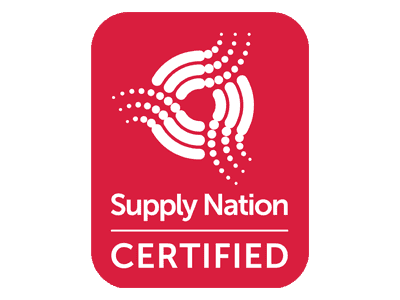So, you just got an invitation for a job interview and feel the rush of excitement and nervousness as the big moment comes closer. Read our helpful guide to understand what to expect.
Different styles of interviews
First, you need to be aware that interviews can take several forms. Understanding the differences and knowing how to react to each situation is very important.
Behavioural interviews
Behavioural interviewing works on the premise that your past performance is the best indication of future actions. In other words, if a prospective employer can determine your behaviour in past experiences and situations, they feel that they will be able to predict your reaction to similar circumstances in the future.
The best preparation for a behavioural-based interview is to identify four or five examples of past behaviours that demonstrate your ability to add value and tackle difficult situations. But remember: Never rehearse your answers too rigidly, always be prepared for further questioning, and be ready to expand on your answers.
Situational interviews
Situational interviews are similar to behavioural interviews but emphasise hypothetical questions rather than actual life experiences. Questions tend to be based on the quantifiable skills identified as necessary to perform the role rather than past behaviour.
The best way to prepare for this type of interview is to closely study the job specification and match your relevant skills to the main points, as questions will tend to focus on these areas.
Unstructured interviews
This interview style will appear more informal and conversational, and the main information will be gained from the ensuing discussion and debate. You must be proactive and carry the conversation where necessary to demonstrate your ability to think and act promptly and appropriately. Although this interview style may appear more casual than expected, be aware that your answers will be closely monitored to determine your genuine skills, personality, and cultural fit.
Panel interviews
A panel interview is likely to consist of several members of an organisation. Each member may have different agendas or priorities, so it is important to establish rapport individually where possible, keep eye contact with all members, and be sure to answer specific technical or strategic questions accurately as there will be a breadth of expertise present. Panel interviews tend to occur for more senior or technical positions, so do not worry about facing one of these if you are taking your first steps in the workplace.
Sample interview questions and answers
When asked open-ended questions, always try to make your answers positive. Below are some common questions interviewers ask, along with our tips as to what they’re looking for in your responses.
Q1: What can you tell me about yourself?
(What the interviewer is really saying: “I want to hear you talk.”)
How to answer: This is a commonly asked question designed to “loosen” you up. Spend a maximum of five minutes to describe your qualifications, career history and your range of skills. Emphasise those skills that are relevant to the job on offer.
Q2: What have been your achievements to date?
(What the interviewer is really saying: “Are you an achiever?”)
How to answer: Again, this is a common question, so be prepared. Select a recent achievement. Identify the skills you used in the achievement and quantify the benefit.
Q3. Are you happy with your career to date?
(The interviewer is really asking about your self-confidence, your career aspirations and whether you are a positive person.)
How to answer: The answer must be positive, but you can say that you have hit a career plateau or feel that you are moving too slowly. Make sure to qualify your answer.
Q4: Tell me the most challenging situation you have faced and how you tackled it.
(The interviewer is trying to determine your definition of “difficult” and whether you can show a logical approach to problem-solving.)
How to answer: Select a difficult work situation that was not caused by you. Explain how you defined the problem and what solution you applied to overcome the problem.
Q5: What do you dislike about your current role?
(The interviewer is trying to determine whether the job on offer has any responsibilities you might dislike.)
How to answer: Be careful with this one. One approach is to choose a characteristic of your present company, such as its size, slow decision-making processes, etc. Give your answer with the air of someone who takes problems and frustrations in your stride as part of the job.
Q6: What are your strengths?
(The interviewer wants a straightforward answer about what you are good at and how this will add value.)
How to answer: This is one question you will almost certainly be asked, so there’s no excuse for being unprepared. Concentrate on discussing your main strengths. List three or four explanations of how they could benefit the employer. Strengths to consider include technical proficiency, ability to learn quickly, determination to succeed, positive attitude, team focus, and your ability to work autonomously. Back up your claims with concrete examples.
Q7: What are your greatest weaknesses?
(The interviewer is asking about your self-perception and self-awareness.)
How to answer: This is another standard question for which you can be well prepared. We all have weaknesses. Don’t say you don’t have any. Either use a professional weakness such as a lack of experience (not ability) on your part in one area (that is not vital for the job), or use a personal weakness and show the steps you have taken to combat it. An example would be, “I’m not very good at delegating but I’m learning to pass work on to colleagues by sitting down every week and taking the time to split the workload.”
Q8: What kind of decision do you find most challenging?
(The interviewer is really saying: “I need someone who is strong and decisive but who has a human side.”)
How to answer: Try to focus on decisions you have made without sufficient information. This will show your positive side. For example, “I like to make decisions based on sufficient information and having alternatives. When you have to make quick decisions, you have to rely on gut feeling and experience.”
Q9: Why do you want to leave your current employer?
(The interviewer is trying to understand and evaluate your motives for moving.)
How to answer: This should be straightforward. State how you are looking for more challenge, responsibility, experience and a change of environment, then explain why you feel you are no longer receiving these things from your current role. For example, “I have been with my company for four years and feel I have learnt as much as possible and there is no opportunity for a more senior role at present.”
Other questions to consider:
- How does your last/current job fit into your team and company? (This gives an idea of your level of responsibility.)
- How do you respond to working under pressure? (Real meaning: Can you? Give examples.)
- How have you coped when your work has been criticised? (Give an example, including the outcome.)
- How have you coped when you have had to face a conflict of interest at work? (Testing interpersonal skills, team and leadership opportunities.)
- What are your preferred working conditions (working alone or in a group), and why?
- How do you think you will fit in here, especially as this organisation is very different from your current employer? (You may not be able to answer until you have established what your interviewer perceives as the differences.)
- What are you looking for in a company?
- How do you measure your own performance?
- Which part of this role is least attractive to you?
- Why should I give this position to you instead of the other people on the shortlist? (Revisit your strengths.)
- What would your previous employers say about you and what would they consider your weaknesses?
How to prepare your own questions for the interviewer
Before your interview, prepare your own questions to ask the interviewer. Using open-ended questions (beginning with “What?”, “How?”, “Where?”, “Why?” or “Who?”) should encourage your interviewer to talk and provide you with additional information. We recommend that you consider some of the following:
- What will the key responsibilities be?
- What do you see as the main challenges facing someone in this role?
- What is most pressing, and what would you like to see done in the short/medium term?
- How has the position become vacant?
- How is performance measured, and will goals be clearly defined? How does this occur?
- How does the role fit into the structure of the department?
- How does the department fit into the organisation as a whole?
- What is the company’s culture?
- Who will I report to, and are there persons reporting to me?
- Where would my line manager fit into the structure?
- What encouragement is given to undertake further training?
- Who are your customers?
- Where is the company going? Are there any expansion plans?
- Where is the specific location of the position?
- Will the position entail travel?
- How soon will you decide on the appointment?
- What is the next step?
Your advantage with Rainy Day Recruitment
Need a little support finding your dream role? We work with you to match your skills and preferences with suitable job openings, including roles that may not be publicly advertised. Think of us as your agent, with services that are completely free to job seekers and that will increase your chances of standing out to potential employers.
We focus on finding the right fit for you and the employer, ensuring a positive and mutually beneficial match.
Call Rainy Day Recruitment for more support, and share your skills, experiences, and what you’re looking for.



